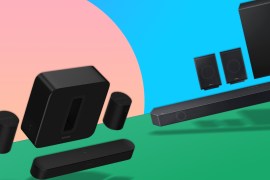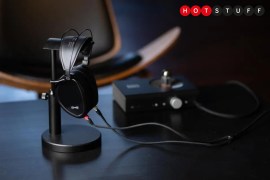Bose Ultra Open Earbuds review: hooked on you
Clear sound meets a comfortable fit
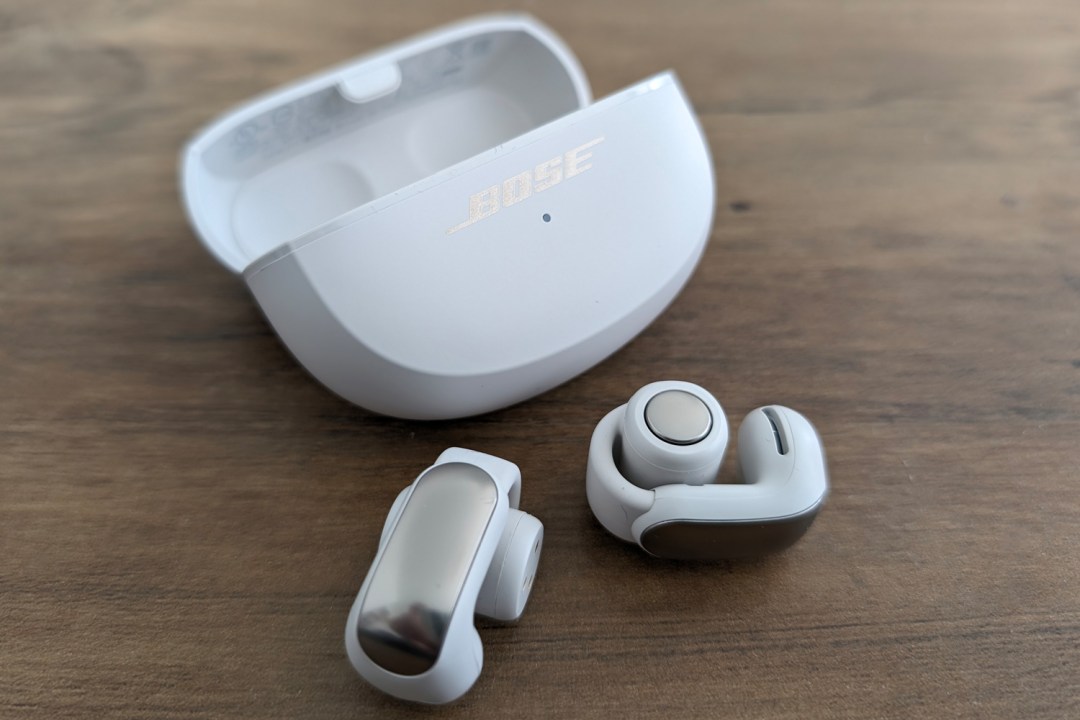
Stuff Verdict
The Bose Ultra Open Earbuds fly straight to the top of the emerging ‘open fit’ class, with subtle styling and great sound. Just try not to wince at the price.
Pros
- As subtle as open fit earphones get
- Expansive, impactful sound
- Very comfortable fit
Cons
- Very expensive
- Battery life could be better
- Narrower appeal than regular earphones
Introduction
Open Fit might be the audio world’s favourite new buzzword. A step on from bone conduction tech, open fit earphones keep your lugholes clear to hear the outside world – while still clearly piping your tunes through in great clarity. They’re a niche alternative to traditional wireless earbuds, and not necessarily one I expected noise cancelling expert Bose to take a stab at.
The firm tested the water with a limited drop in partnership with lifestyle fashion brand Kith, and promptly sold out within hours. Now the Bose Ultra Open Earbuds have been granted a full production run, taking on the likes of the Huawei FreeClip with the promise of bespoke spatial sound and tech dedicated to tackling audio leakage.
I’ve tried a few pairs of open-fit earphones, but have yet to be entirely convinced. Did the Ultra Open Earbuds’ unique flexible fit change my mind after a week of regular listening?
How we test headphones
Every pair of earphones and headphones reviewed on Stuff is used for a minimum of a week’s worth of daily listening. We use a playlist of test tracks made up of multiple genres to assess sound, and use our years of experience to compare to other models. Manufacturers have no visibility on reviews before they appear online, and we never accept payment to feature products.
Find out more about how we test and rate products.
Design & build: feeling flexy
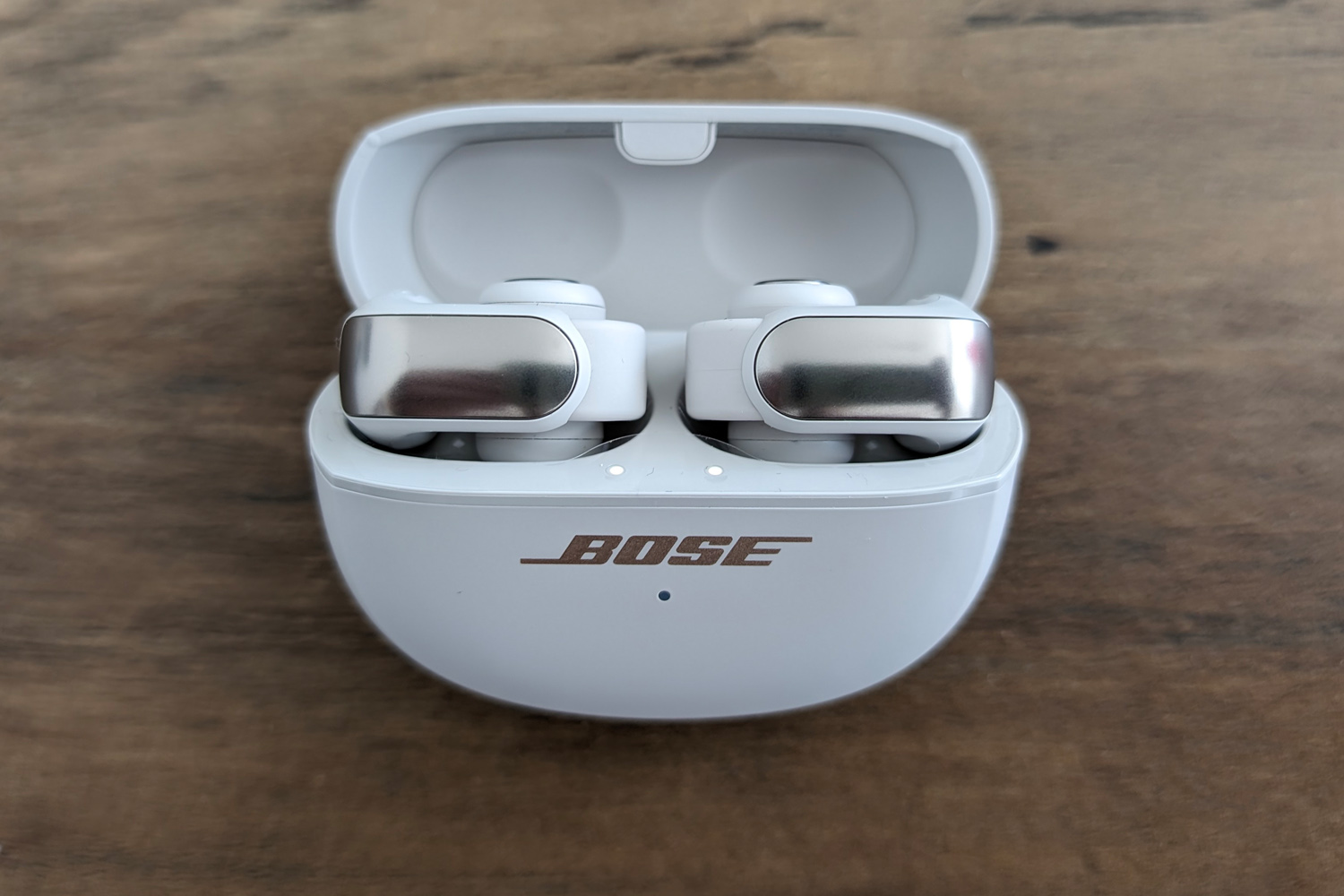
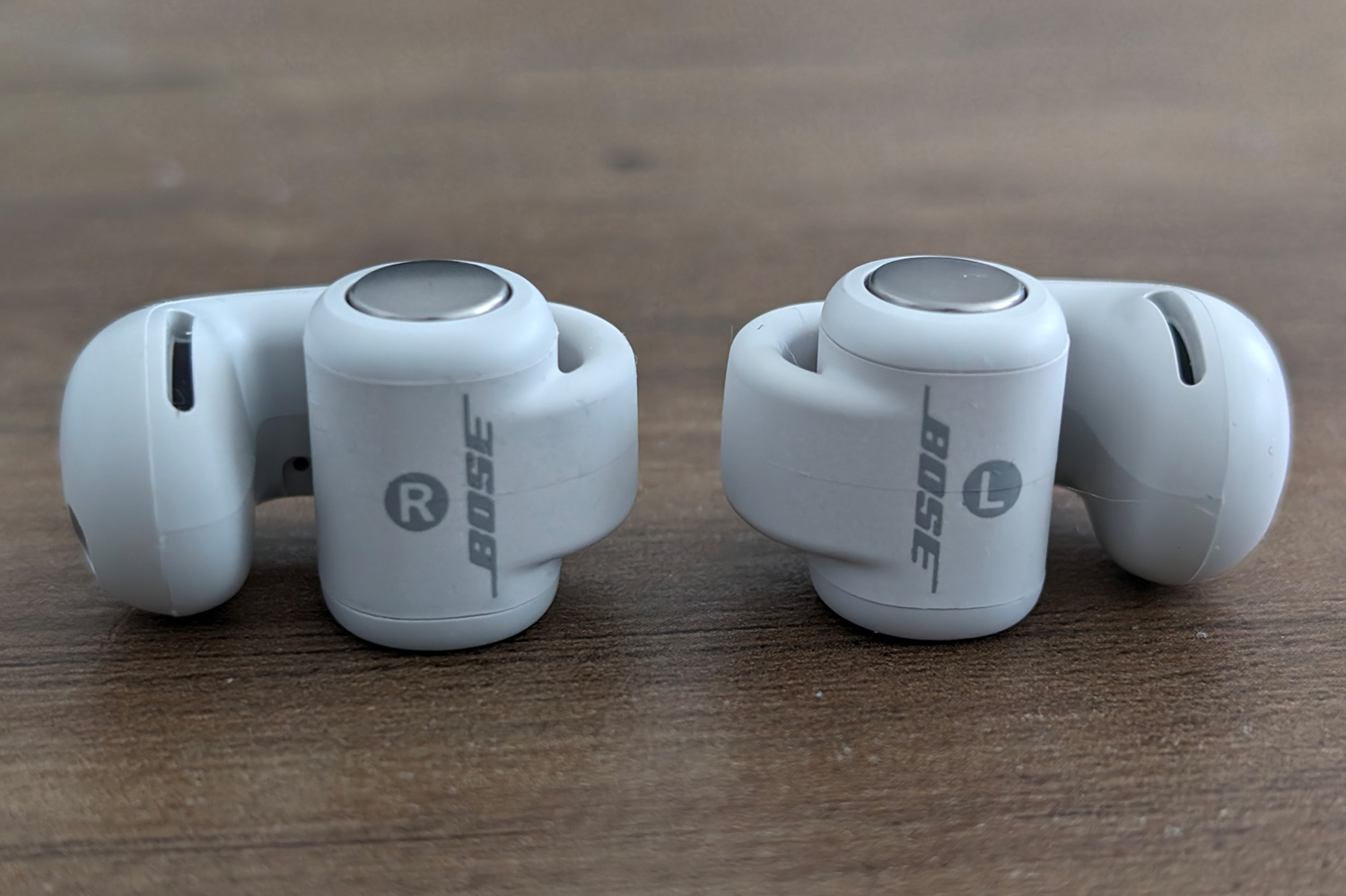
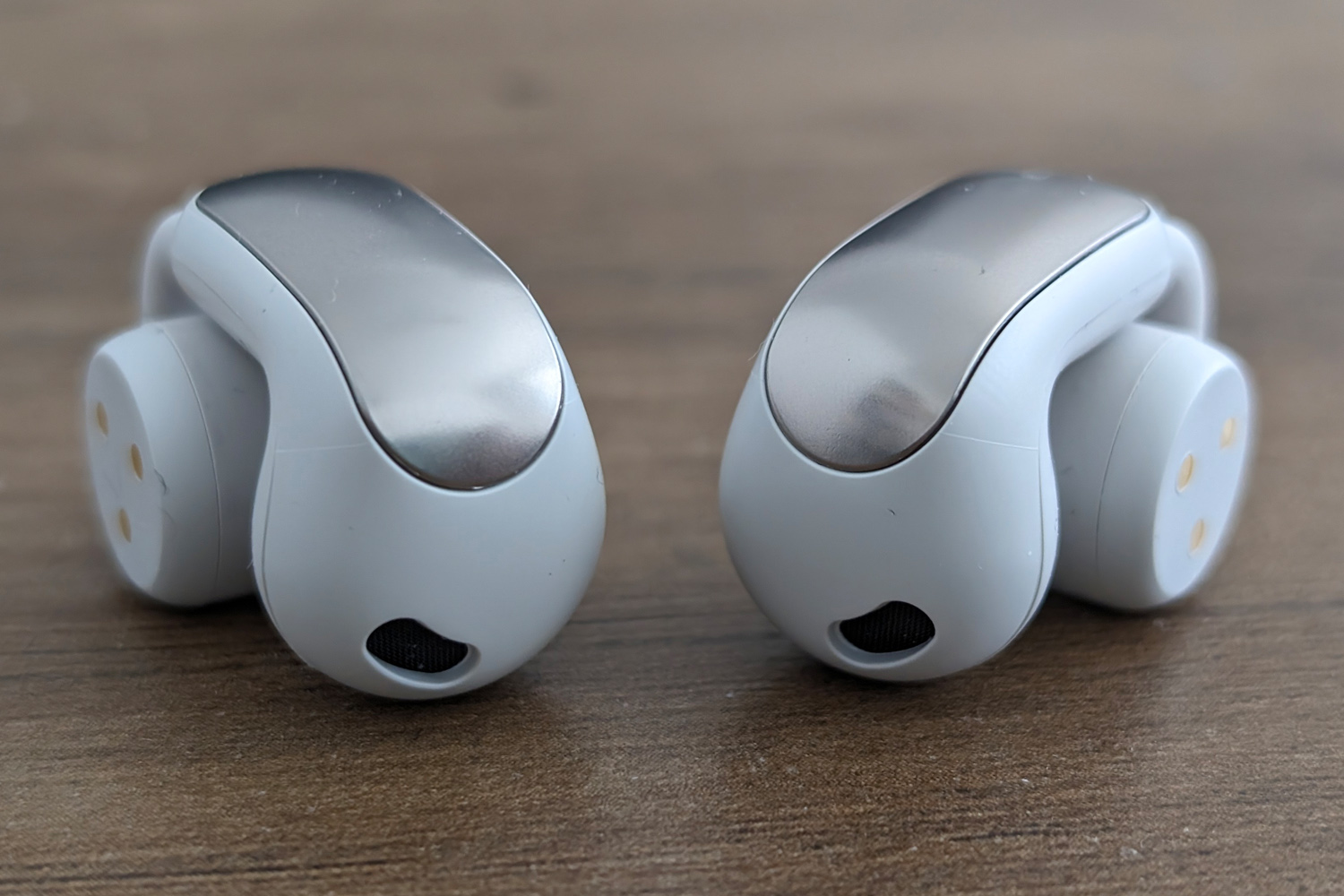
The Ultra Open Earbuds are especially funky-looking ‘buds. Each one is essentially two parts, held together by a flexible rubber strip. The bit with the speaker driver goes in your ear, but doesn’t cover the ear canal; the bit with the battery and playback button hooks behind it. It took a few tries before I was putting them on perfectly each time, but the companion app does a great job of walking you through it.
Comfort is king when it comes to open fit earphones, and these are among the best I’ve tried. The amount of pressure applied is just right, keeping each ‘bud in place but avoiding any listening fatigue. IPX4 sweat resistance makes them ideal for exercise, even if the open nature means they’ll be competing with the PA system if you wear them to the gym.
These aren’t the lightest earphones around, but I could still leave them in all day; when music wasn’t playing I practically forgot I was wearing them. Bluetooth LE means they then sip power while not playing tunes. They didn’t get in the way of my glasses, and the way they avoid your ear lobes mean ear rings shouldn’t get caught or knocked about either.

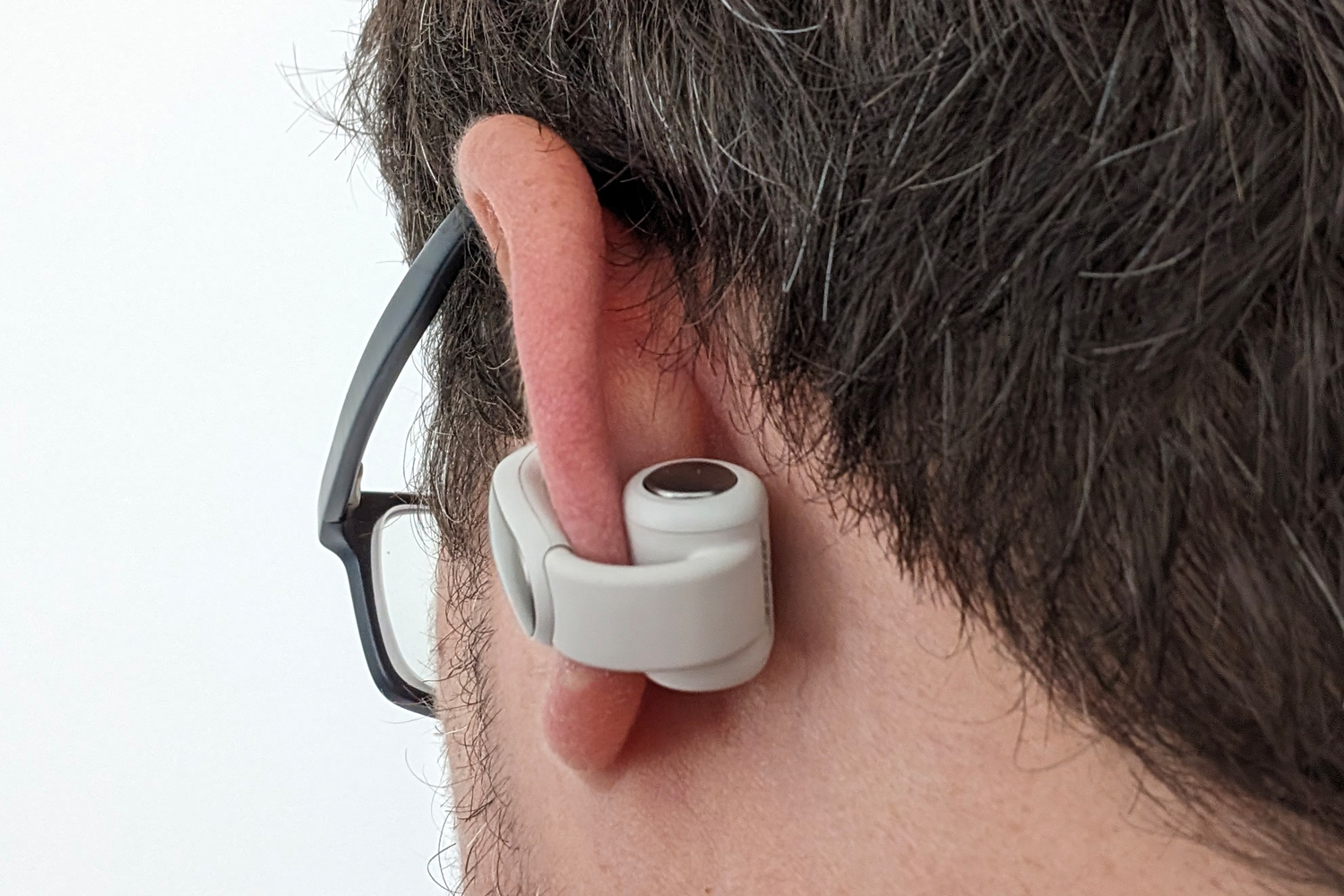
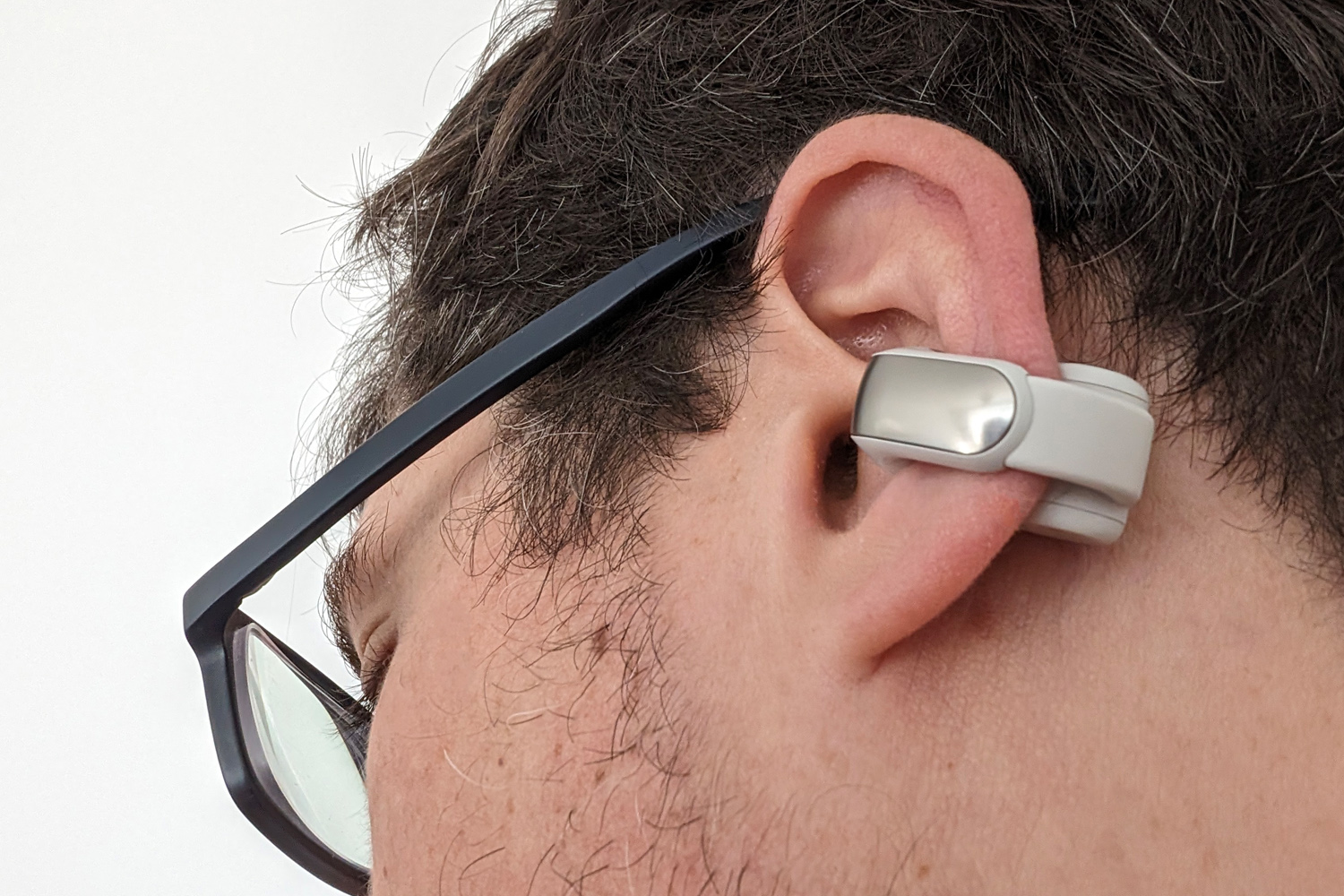
I’m also a big fan of the styling. They don’t dangle down from your ears like other cuff-style ‘buds, which can look like you’re wearing particularly chunky hoop ear rings. My White review unit is the flashier of the two colour options, with Black being slightly more subtle, but I wouldn’t say either stands out any more than a traditional pair of wireless earphones.
The charging case is far more traditional, being roughly the same size as an Apple AirPods Pro case. The flip-top lid reveals a set of charging pins for each earbud. They’re strong enough to pull the earbuds to place, so you never have to worry about them not charging by being misaligned. Individual charging LEDs confirm you’ve slotted each one home correctly; a third LED on the outside indicates how much juice is remaining in the case itself.
Features & battery: sense of space
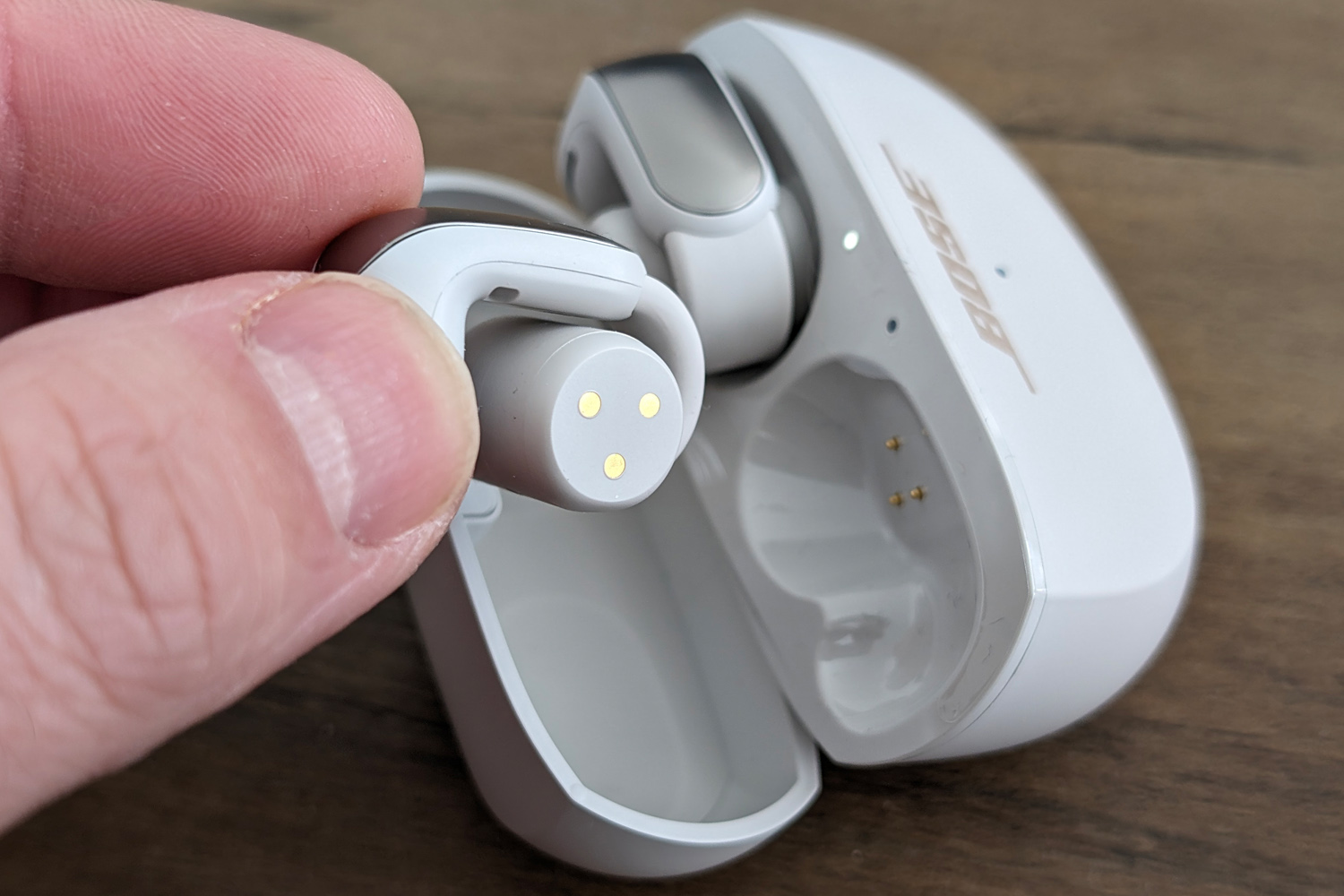
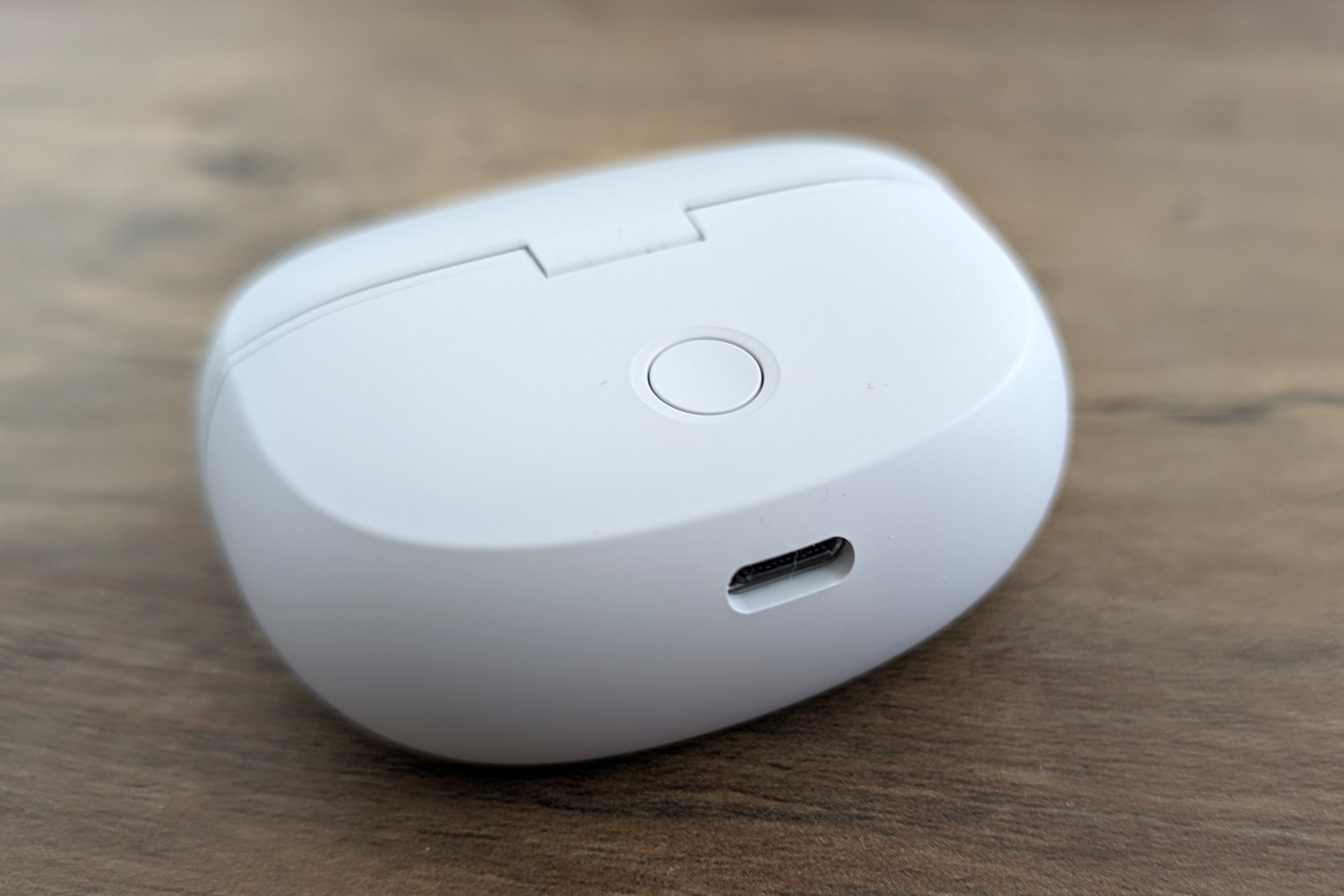
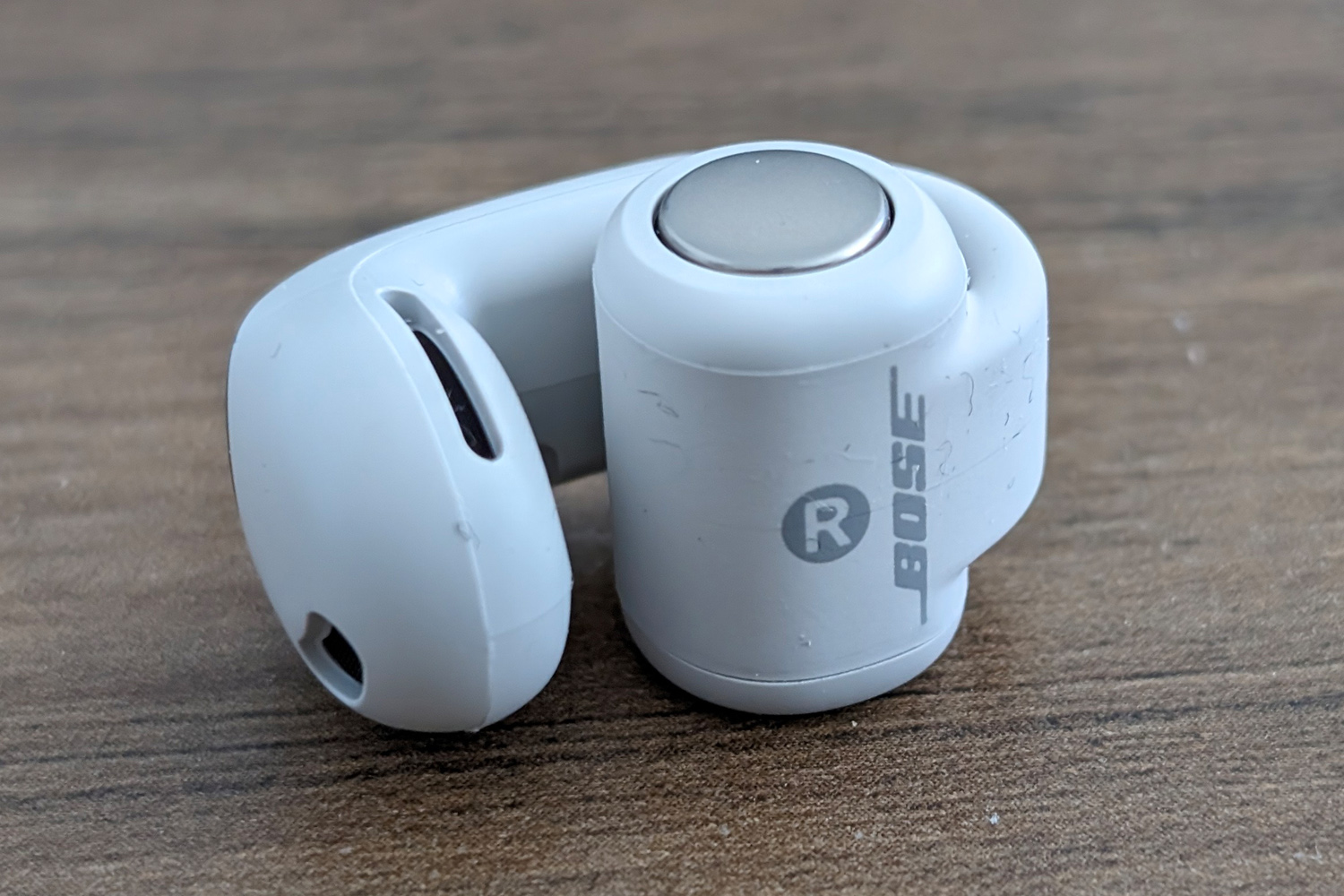
The Ultra Open Earbuds use Bose’s OpenAudio tech to cut down on sound leakage. As well as angling the drivers towards your ear, they cleverly reverse the frequencies going in the other direction, minimising how much anyone else can hear your tunes. It works, too. At sensible volume levels, I could listen to a playlist while sharing a sofa with my wife, and she was none the wiser.
Bose has also brought Immersive Audio, first seen on the QuietComfort Ultra Earbuds, along for the ride. Unlike other takes on spatial sound, which use head tracking to create a sense of the performance being in a fixed position, this creates a wider, more enveloping soundscape than simple stereo can manage. I found it very effective here in the “Motion” mode, expanding the soundstage significantly without losing any particular part of the frequency range.
There’s also a “still” mode (to be used when you’re stationary, not when you want your music to stay in one place) that can subtly move the mix around as you turn your head. Personally I’m not a fan, though it’s subtler here than any other head tracking spatial sound I’ve used.
You don’t get any sort of wear detection here, because you’re not constantly popping the Ultra Open Earbuds in and out to hear what’s going on around you. Music only stops when you put the buds back in the charging case. It can fully charge them in an hour or so, with a shorter 10 minute top up usually good for an extra hour of listening.
The buds can last up to seven and a half hours of playback, with enough standby time to stay on your ears all day, but only in stereo mode. Immersive audio brings that figure down to four and a half hours. I’ve seen plenty of traditional wireless earphones that can last longer, even with tricks like active noise cancelling enabled. At least the Ultra Open Earbuds speak the remaining battery level when you first pop them in your ears, so you’re unlikely to get caught short.
Interface: mostly minimal
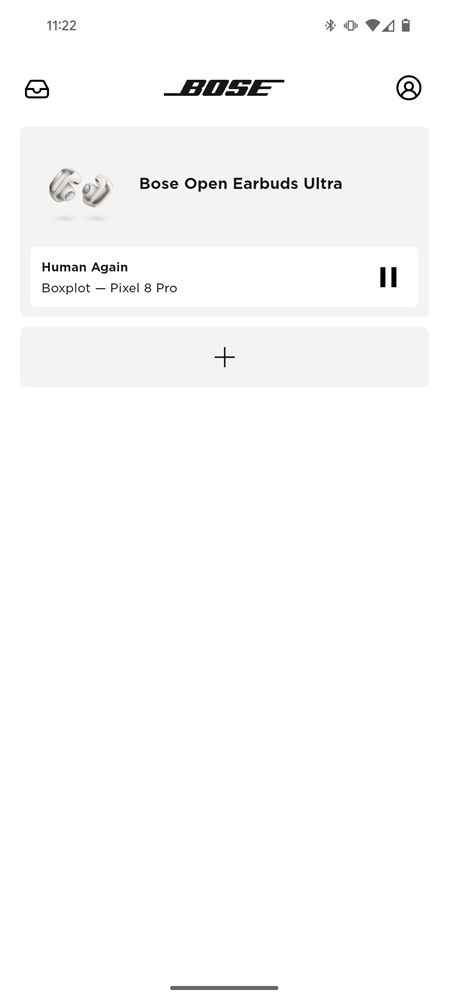
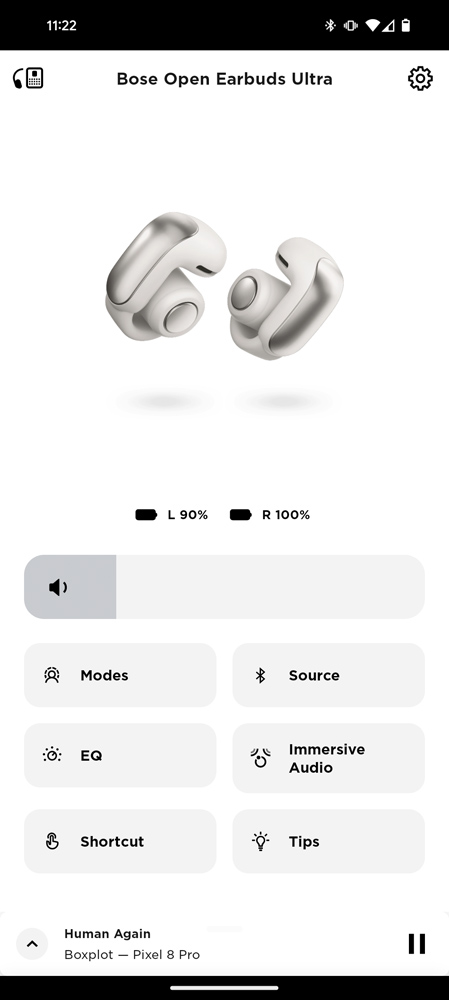
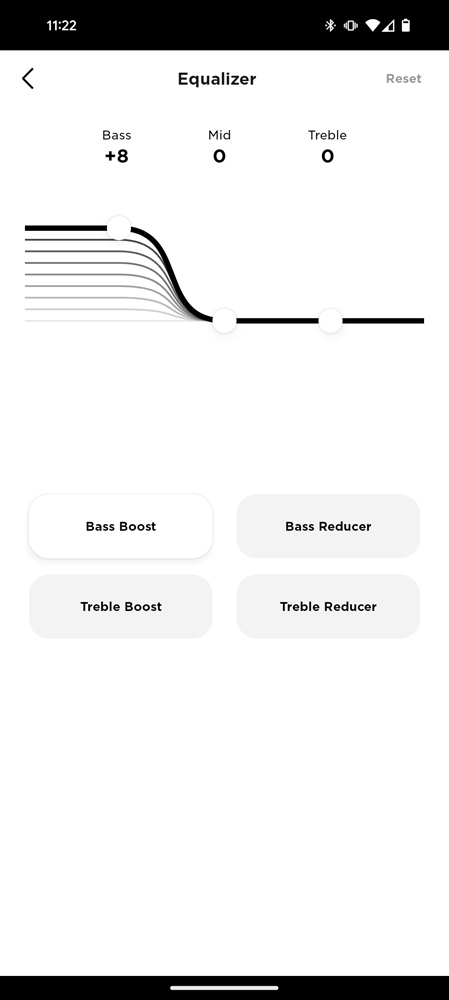
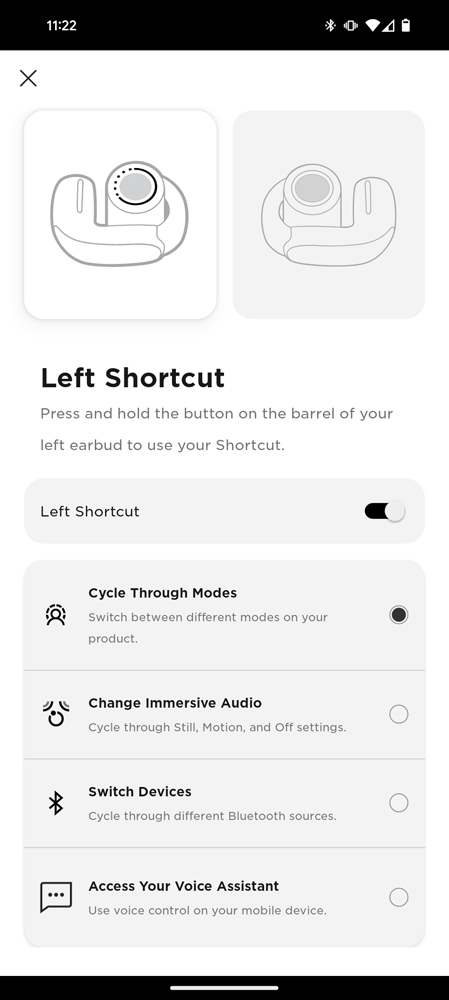
I’ve used the Bose Music Control app a few times now. While the Ultra Open Earbuds might miss out on ANC, they have just as many options to tweak as the firm’s other headphones. That includes the basics like volume and playback controls, choosing the currently active Bluetooth source, and toggling between the various Immersive Audio effects.
There’s a basic three-band equaliser for tweaking bass, mid and treble, but no way to save custom presets. Tips and tutorials walk you through each setting, and the app also handles over-the-air firmware updates.
You can customise what a press-and-hold action does for each earbud, with options for activating your phone’s voice assistant, switching Immersive Audio modes, and even swapping between Bluetooth devices. That proved especially handy when working, as I could switch between my laptop and smartphone very quickly. Single, double and triple presses are dedicated to playback and skipping tracks, and can’t be changed.
I found it took a bit of practice to locate those buttons at first, because they’re placed behind your ear rather than on it, like most traditional earphones. Still, they’re easy enough to squeeze and don’t shift the earbuds around when you press them.
Sound quality: open air concert
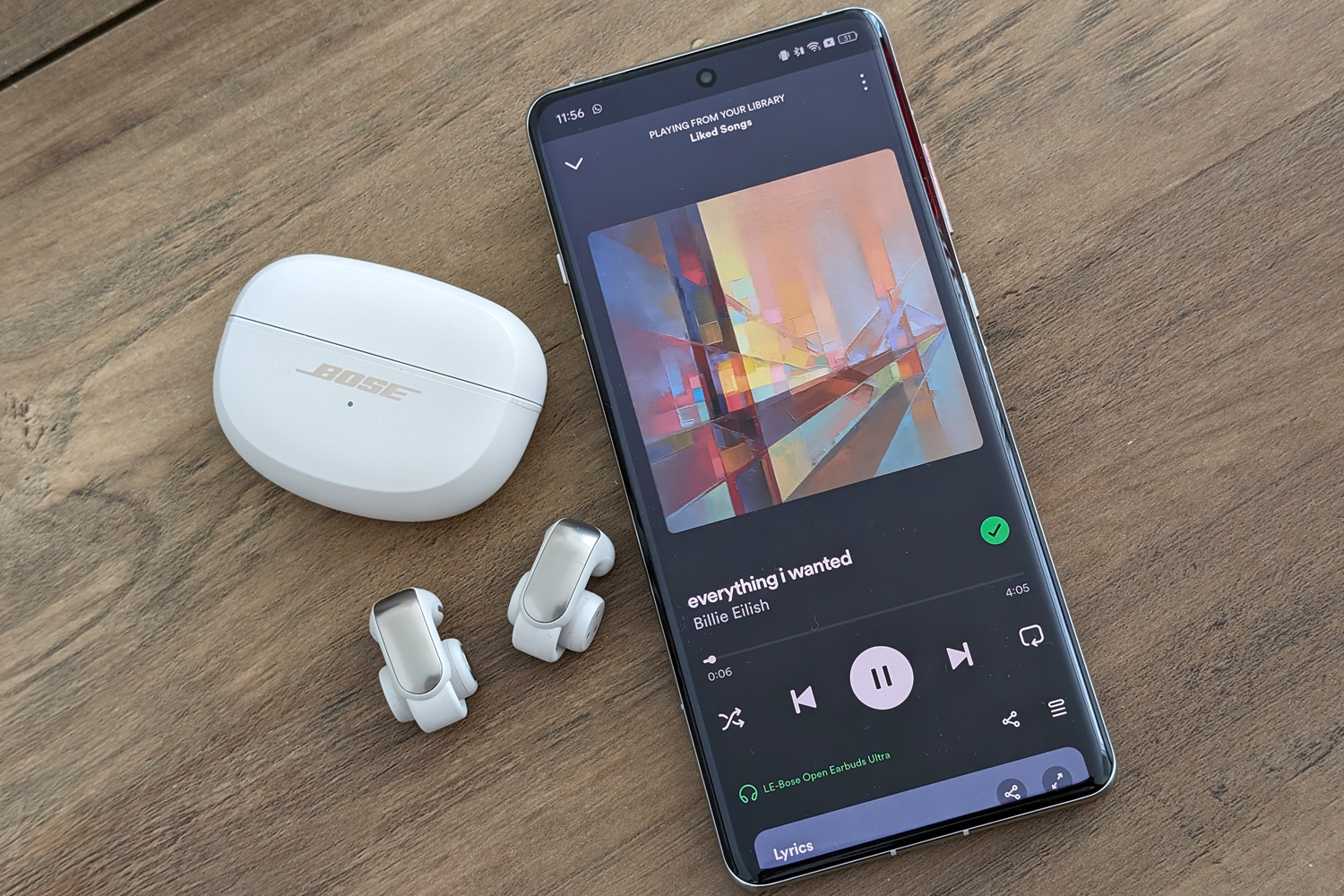
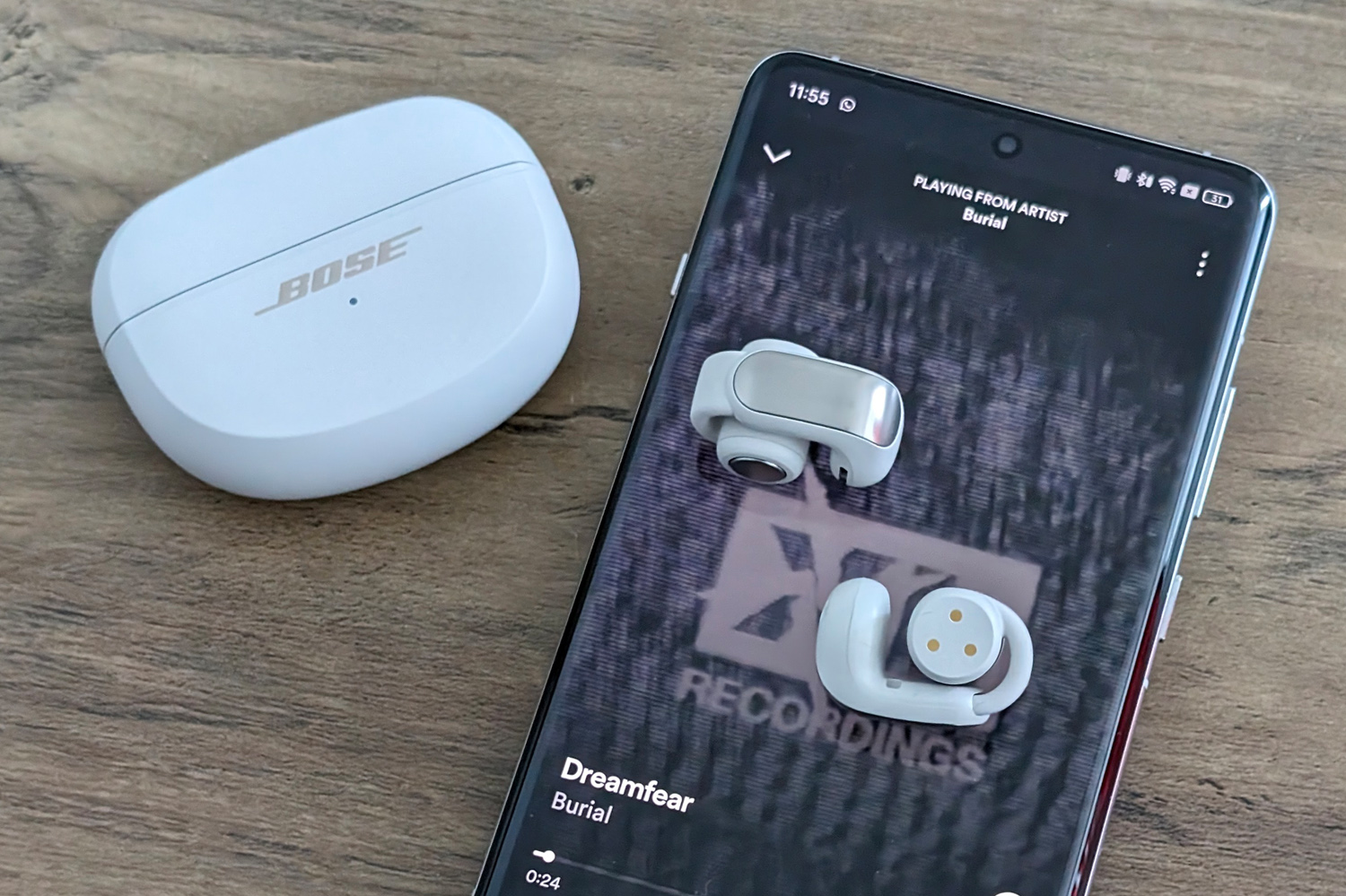
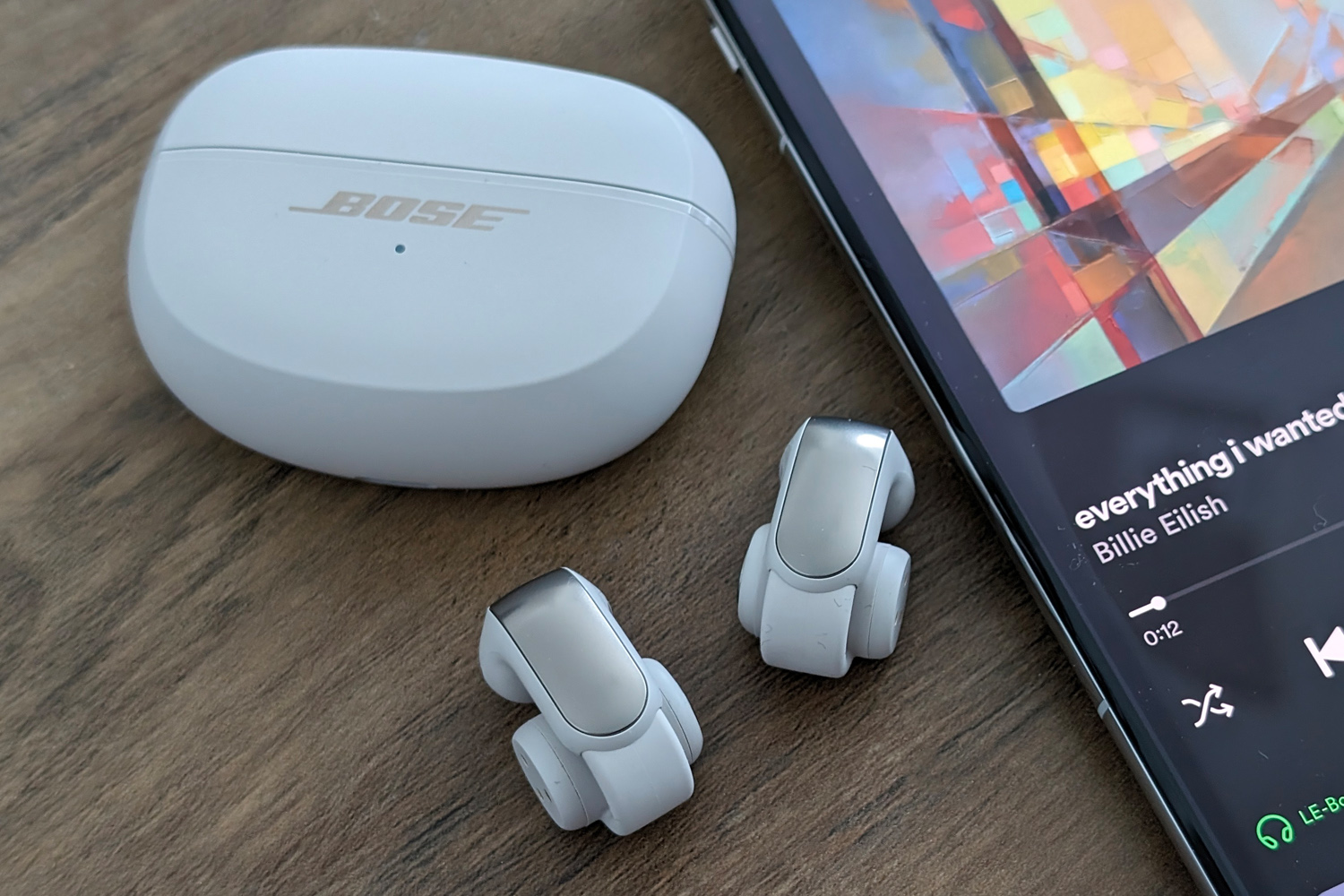
Open fit earphones aren’t usually the last word on audio excellence, but Bose at least gave the Ultra Open a fighting chance. They have Snapdragon Sound, meaning aptX Adaptive Bluetooth on compatible devices, and the firm’s familiar analytical audio tuning.
Listening at home, I was genuinely surprised how clear and precise my music sounded. There’s an inherent airiness to the audio, which comes from the drivers not pointing directly into your ear canals, but the effect wasn’t nearly as pronounced as I was expecting. At moderate volume in a quiet room, it’s easy to forget these are anything different to a traditional set of earphones.
The Ultra Open Earbuds preserve plenty of detail, with an impactful mid-range and crisp highs. There’s not much in the way of sub-bass, with electronic tracks like Burial’s Dreamfear feeling just a little anaemic, but the Bass Booster preset goes a long way to restoring some low-end oomph. Immersive Audio also does its own heavy lifting, bringing the mix frontwards without colouring the music to any meaningful degree.
If your only prior experience of open fit earphones was a pair that relied on bone conduction, you owe it to yourself to try these. The sound quality is really very good indeed, even if audiophiles will still want the more full-bodied sound that traditional in-ears provide.
It’s worth remembering that an open fit means outside noise can easily mask what you’re listening to; I would miss parts of conversations in podcasts when walking on busy roads, and could forget about enjoying a playlist on the loudest parts of the London Underground. A regular pair of wireless earphones might not be the last word in comfort, but noise cancelling really comes into its own here.
Bose Ultra Open Earbuds verdict
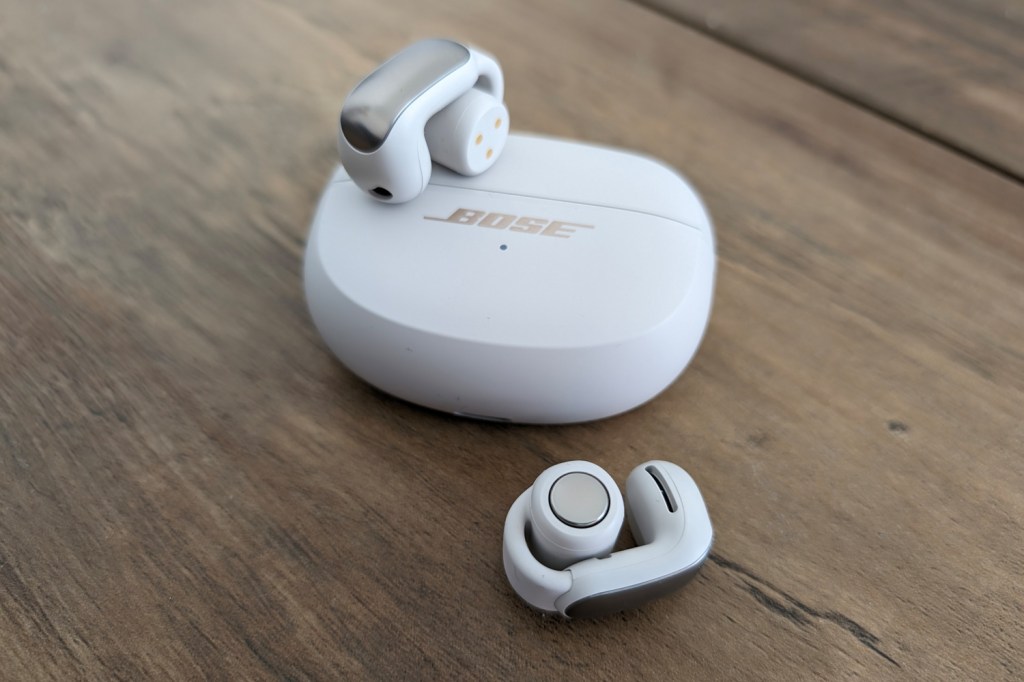
I started this review as an open fit sceptic, but Bose has managed to change my mind. The Ultra Open Earbuds are wonderfully comfortable to wear all day, and look much more like traditional in-ears than the distinctive Huawei FreeClip I’d tested previously. Sound quality is also stellar for the class, although audiophiles are unlikely to be swayed from their IEMs.
Battery life is merely OK when using immersive audio, though, and I’m not quite ready to give up my noise cancelling in-ears just yet. They’re simply more multi-purpose, with ANC when I don’t want to hear the outside world, and a transparency mode that works just fine for the few times I need to hear other people.
But if you genuinely can’t stand in-canal earphones, you might consider these deserving of an extra star.
Stuff Says…
The Bose Ultra Open Earbuds fly straight to the top of the emerging ‘open fit’ class, with subtle styling and great sound. Just try not to wince at the price.
Pros
As subtle as open fit earphones get
Expansive, impactful sound
Very comfortable fit
Cons
Very expensive
Battery life could be better
Narrower appeal than regular earphones
Bose Ultra Open Earbuds technical specifications
| Drivers | Not stated |
| ANC | N/A |
| Bluetooth version | Bluetooth 5.3 / Bluetooth LE |
| Codecs supported | Aptx Adaptive / Snapdragon Sound, AAC, SBC |
| Durability | IPX4 |
| Battery life | 7.5hrs (buds) 19.5hrs (case) |
| Dimensions | 19x17x27mm, 8g (buds) 42x65x26mm, 45g (case) |

